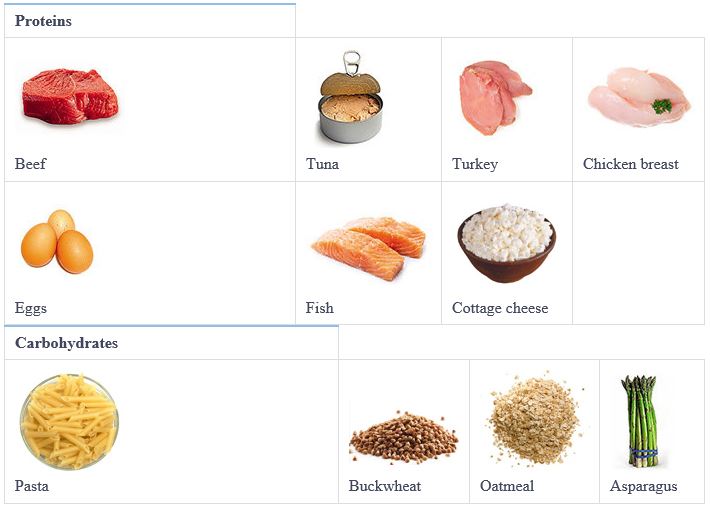How many calories does a healthy person need to consume per day?
Did you know that washing dishes, walking in the park, exercising in the gym, and any other action even the most insignificant activity is accompanied by the burning of a certain amount of calories.

Calories
It is the energy that the human body spends to function normally. Each person, regardless of whether a woman or a man. Daily must supply his body with a certain amount of calories. The required amount of calorie intake by each person is individual, and such factors as gender, age, lifestyle, level of daily activity determine it.
In terms of gender, calorie intake differs in that the daily allowance for men is higher than the daily budget for women. In terms of age, a young body requires more calories, which spends considerable energy on growth and development.
Also, young people tend to have a more active lifestyle. While as they grow older, a person’s lifestyle tends to become more relaxed and measured. For example, at the same time, a person who spends most of the day sitting in his office needs much fewer calories than an athlete whose daily schedule is associated with hours of training.
Daily calorie intake for men
Passive lifestyle.
For men of this category, from the age of 19 to 30, the daily norm is 2400 calories. And from the age of 31 to 50 – 2200 calories. Men over 51 have enough of 2000 calories per day.
Moderately active lifestyle.
The norm for men aged 19 to 30 is 2600-2800 calories. And for men from 31 to 50, the daily calorie intake is 2400-2600. Those over 51 advised consuming 2200-2400 calories.
Active lifestyle.
The daily calorie intake for a man has aged from 19 to 30 years is 3000 calories. And age from 31 to 50 – 2800-3000 calories. If a man is Folder than 51, his daily calorie intake is 2800-2400.
Daily calorie intake for women
Passive lifestyle.
Women in this category, aged 19 to 25, are advised to consume about 2,000 calories per day. The daily norm of women aged 26 to 50 years is 1800 calories. For women older than 51 years, 1600 calories per day are enough to maintain a healthy life activity.
Moderately active lifestyle.
Women between the ages of 19 and 25 need to consume 2200 calories daily. The daily norm of women aged from 26 to 50 years is 2200 calories. And over 51 is 1800 calories.
Did you know that reviews about body drying for girls are always positive? Most girls prefer to dry the body, rather than sit on dubious diets.
Active lifestyle.
The average daily calorie intake for women with an active lifestyle from 19 to 30 years is 2400 calories. Women aged 31 to 60 advised consuming 2,200 calories. And for Women over 61 – 2000 calories.
Besides, the daily calorie intake, which must be received by the human body, depends on in what relationship with one’s weight a person is. Those who are struggling with the problem of excess weight recommended consuming fewer calories. For those who, on the contrary, are trying to gain weight, calorie intake should increase.
Daily intake of proteins, fats, and carbohydrates for all
Carbohydrates, proteins, and fats are the three critical macronutrients that support the biochemical function of the body, which provide it with energy and strength to solve everyday problems. A person who provides his body with the necessary number of calories, as well as the correct balance of proteins, fats, and carbohydrates, provides significant assistance to his body.

Carbohydrates are the primary energy resource of the body. During digestion, carbohydrates break down into glucose, which is the primary fuel for our cells. None of the organs of the human body will function normally without getting the right amount of carbohydrates—the most beneficial carbs found in foods such as whole grains, fresh fruits, and vegetables. The vital energy value of glucose for the body determined by the fact that carbohydrates should provide 60% of the daily norm of calories consumed by the body.
Protein can define as the building material of the human body. Muscle organs, hair, nails, and all social systems made up of protein. Equally important, protein is actively involved in the functioning of the immune system. The highest content of this critical macrocell can boast in animal products.

As a rule, in the range from 10 to 15% of the total number of calories. The human body should receive from protein. So, for example, if you consume 2000 calories per day, at least 200 of them, or about 50 grams, should be “protein” calories. It generally accepted that a person should try to eat about one gram of protein for every kilogram of body weight.
The role of fats in the body is no less critical. Fats contribute to the intake of many macrocells necessary for life, activate a protective function. And also to take part in metabolic processes and to perform a host of other useful features. In addition to that, it is fats, which tend to be deposited with excessive intake, provide the body with energy when the absorption of carbohydrates and proteins is insufficient.

However, the excessive intake of saturated and trans fats increases the risk of heart disease and several other health problems. “Healthy” fats are unsaturated fats, which in large quantities contain foods such as olive oil, fish, nuts, dairy products. About 25-30% of the total calories consumed should be fats, of which less than 7% should saturate.
Thus, observing the above norms of calorie and macronutrient intake, you can provide your body with energy. And in return, it will provide you with health and vitality.
Not sure what you need to eat to make up for protein in your body? Then the list of protein foods on our website will help you.



